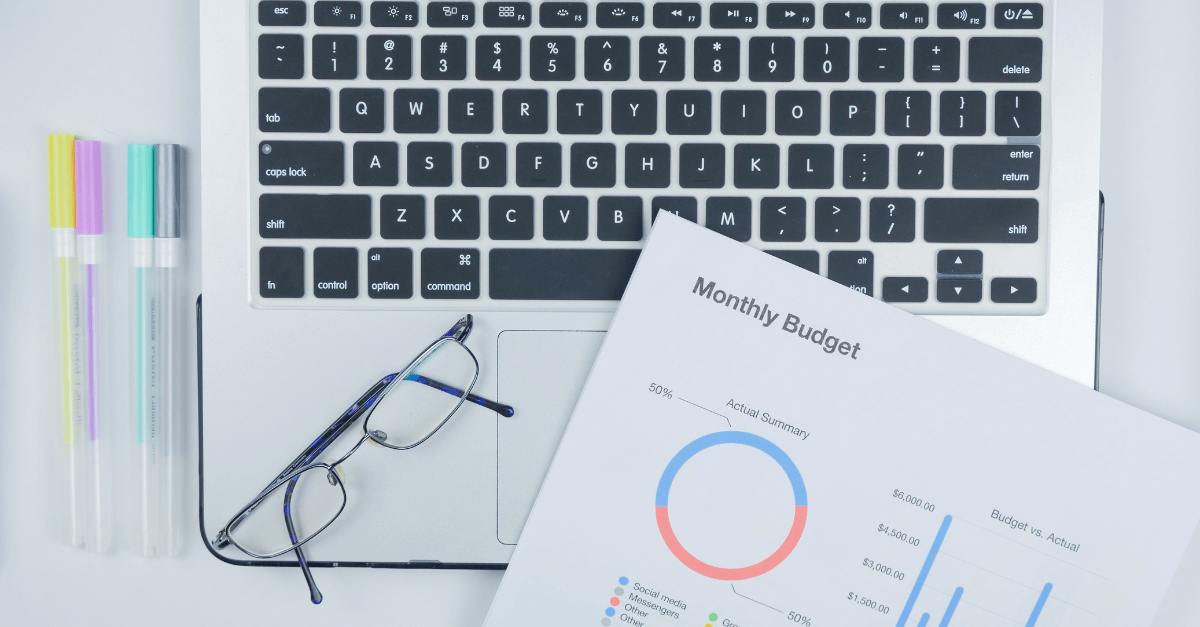Creating a personal budget can be a great way to take control of your finances. In order to create a personal budget, first you need to understand your current financial situation. This means calculating your expect income and your ongoing expenses. Once you have identified all of the money coming into and out of your account each month it’s time to create a budget plan for yourself based on this information. This will allow you to see exactly how much money is available for spending after essential bills have been paid off each month.
How To Create A Personal Budget
Identifying Sources of Income
Creating a personal budget is an important step in taking control of your finances. A key part of this process is identifying all sources of income that you have available to you. Your primary source of income may be from employment, but there are other potential sources too. These can include:
- Investment returns such as dividends and interest payments;
- Rental income from property;
- Pension contributions or annuity payments;
- Government benefits such as tax credits or disability allowance;
- Income generated through self-employment activities.
It’s important to consider any additional forms of regular and irregular income when creating your budget plan so that it accurately reflects the money coming into your household each month. This will help ensure that you don’t overspend on non-essential items and leave yourself short for essential bills like rent/mortgage repayments, utilities etc.
Calculating Expenses and Debts
Creating a personal budget is an important step in managing your finances and ensuring that you are able to meet all of your financial obligations. One of the most important aspects of creating a budget is calculating expenses and debts.
The first step in calculating expenses and debts is to make a list of all regular monthly payments, such as rent or mortgage payments, utility bills, and car loan repayments. This will give you an idea of how much money needs to be set aside each month for these fixed costs. It’s also useful to include any irregular or one-off payments such as insurance premiums or annual subscriptions so that they can be taken into account when setting up the budget plan.
Once you have listed out all regular monthly costs it’s time to look at other areas where money may need to be allocated on a more ad hoc basis. This includes things like food shopping, entertainment, leisure activities, and travel. Make sure not forget about any debt repayments too. This could include credit card debt and student loans.
Once again it’s helpful here if possible try and estimate what kind amount might need spending each month on these items so that there’s enough funds available when needed without overspending elsewhere in the process! Finally don’t forget about savings. Even small amounts can add up over time so make sure at least a small portion of every salary goes towards building up those rainy day funds!
Tracking Your Spending Habits
Creating a personal budget is an important step in managing your finances, but it’s only effective if you track your spending habits. Knowing where and how you spend money can help you identify areas of improvement and make better decisions about future purchases. Here are some tips to help get started:
- Use online banking tools – Many banks offer online services that allow you to view your transactions in detail, including the date, amount spent, merchant name and category. You can use these tools to get a better idea of what you spend your money on.
- Track cash purchases – Many apps offer money management services that all you to manually record your cash withdrawals and cash payments. You can use these tools to get a better idea of what you spend your money on when you’re not paying by card.
- Set up spending alerts – Setting up notifications for when certain amounts are spent, or when bills come due, can be helpful reminders. You can use these alerts to stay on top of your outgoings and to track your overall monthly spend!
Adjusting Your Personal Budget As Needed
Creating a personal budget is an important step in taking control of your finances. Once you have created your personal budget, it’s important to adjust it as needed. This will ensure that you are able to stick with your plan and reach your long-term financial goals. Here are some tips for adjusting the budget as needed:
- Monitor Your Spending – Keep track of what you buy and how much money you spend each month. This can help identify possible adjustments and better money allocations – whether it’s more money for essential goods or non-essential services.
- Re-Evaluate Your Goals – Make sure you reassess your financial situation on a regular basis. It’s important to re-evaluate our spending and make necessary changes accordingly so that we can still achieve our goals within a reasonable timeframe.
- Make Adjustments When Necessary – If there is an area of spending where adjustments need to be made due unforeseen circumstances, don’t hesitate! Making small changes here and there when necessary will help keep things manageable while still allowing room for flexibility.
